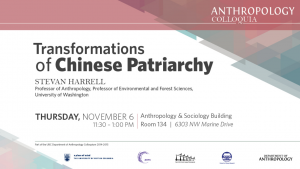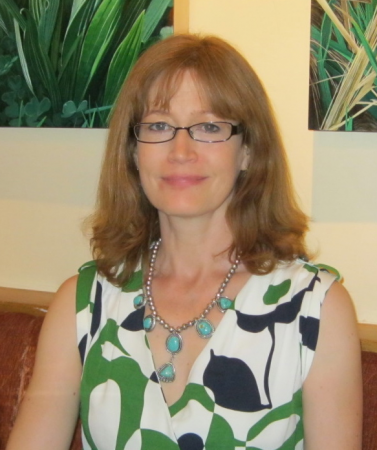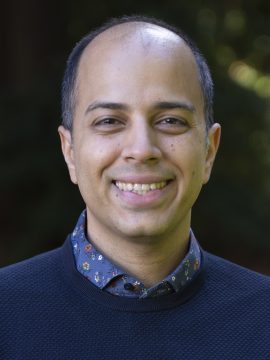Anthropology Colloquium is the department’s speaker series that invites a mixture of anthropologists from within and outside of UBC to present their research. This speaker series is scheduled throughout the academic year, typically with a lunch reception in the AnSo Lounge.
Transformations of Chinese Patriarchy
Thursday November 6, 2014
Anthropology and Sociology Building (ANSO) 134
11:30 – 1:00 pm
Event Poster: PDF
Dr. Stevan Harrell
Professor of Anthropology, Professor of Environmental and Forest Sciences, University of Washington
Abstract
China’s patriarchal system, under sporadic attack for many centuries and under concentrated attack for decades in the 20th, managed to survive more or less intact through the May Fourth Era and even the period of High Socialism. But in the last few decades, things have started to happen. Daughters-in-law openly berate their fathers-in-law. Companies sell filial-piety insurance. Everybody lives together before marriage, and in some places almost all brides are pregnant. There is an acute shortage of sperm donors. This talk first traces the outlines of Han Chinese patriarchy, defined as a property-based system of gender and generational asymmetry, as it existed before 1949. It briefly discusses the very partial transformation of that system under Maoist state socialism, and then outlines in detail the more profound changes that have happened in the last three decades of Reform. Finally, it addresses the question, since China is still very much a masculine-dominant society, of what is replacing the recently transformed system Chinese patriarchy.
Bio
Stevan Harrell is Professor of Anthropology, Professor of Environmental and Forest Sciences, and Adjunct Professor of Chinese at the University of Washington. Among other interests, he has been pursuing topics relating to family, kinship and demography in Chinese societies for over 40 years. He is editing Transformations of Chinese Patriarchy together with Gonçalo Santos.
Co-Sponsored by: UBC Department of Anthropology, Institute of Asian Research, and Centre for Chinese Research



